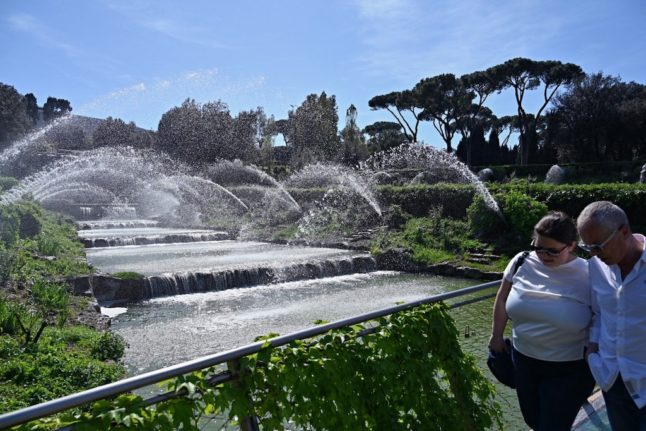In our previous guide to some of the best books to read before moving to Italy, we asked our readers to get in touch with your recommendations.
A number of you responded with your favourite reads about Italy; here’s what you suggested:
Ciao Bella – Six Take Italy
An anonymous reader describes this as “a delightful book about an Australian radio presenter who takes her husband and four children Bologna for a year which turns into two years (one being Covid).”
Kate Langbroek’s comic memoir “had me laughing and crying,” they write.
A Small Place in Italy
An apt choice for those considering their own rural Italian renovation project, Sam Cross recommends this book by British writer Eric Newby about buying, remodelling and moving into a cottage in the Tuscan countryside.
Cross also recommends Newby’s earlier work, ‘Love and War in the Appennines’, about his time as a British prisoner of war captured in Italy by the Germans in WWII.
READ ALSO: Eight of the best books to read before moving to Italy
Here, the author tells of his escape assisted by local partisans, “including a girl, Wanda, who became his future wife. A beautiful story,” says Cross.
The Italians
The Italians is written by veteran Italy correspondent John Hooper, who formerly wrote for the Guardian and is now the Economist’s Italy and Vatican reporter.
From politics to family traditions and the Mafia, the book tackles a range of aspects of Italian history and culture without getting lost in the weeds.
Simone in Rome describes it as “the best single volume on Italian customs and culture there is”.
READ ALSO: Nine things to expect if you move to rural Italy
Venice
It may be more than six decades old, but Jan Morris’s Venice is still considered one of the definitive English-language works on the lagoon city.

Though a work of non-fiction, the book has been compared to Waugh’s Brideshead Revisited for its nostalgic, evocative tone.
“A personal view, beautifully written,” recommends reader Mary Austern.
Thin Paths
Described as a mix of travel book and memoir, Thin Paths is written by Julia Blackburn, who moved with her husband into a small house in the hills of Liguria in 1999.
Despite arriving with no Italian, over time she befriended her elderly neighbours, who took her into their confidence and shared stories of the village’s history under the control of a tyrannical landowner and the outbreak of World War II.
“Write it down for us,” they told her, “because otherwise it will all be lost.”
READ ALSO: Six things foreigners should expect if they live in Rome
In Other Words
If you’re currently learning Italian, consider Pulitzer Prize-winning author Jhumpa Lahiri’s In Other Words / In Altre Parole, which discusses the writer’s journey towards mastery of Italian through full immersion.
Reader Brett says, “The book is written in both Italian and English, presented on opposite pages, so it’s also a nice learning tool!”
Lahiri has since written Racconti Romani, or Roman Tales, a series of short stories set in and around Rome riffing off Alberto Moravia’s 1954 short story collection of the same name.
A Rosie Life in Italy
Ginger Hamilton says she would “highly recommend the ‘A Rosie Life in Italy’ series by Rosie Meleady.”
It’s “the delightfully written true story of an Irish couple’s move to Italy, purchase of a home, the process of rehabbing it, and their life near Lago di Trasimeno.”
The Dark Heart of Italy
Reader William describes The Dark Heart of Italy by Tobias Jones as an “excellent” book.
The product of a three-year journey across the Italy, Jones takes on the darker side of Italian culture, from organised crime to excessive bureaucracy.
Though it was published in 2003, Dark Heart stands the test of time: “twenty-odd years old but the essential truth of it hasn’t changed,” William writes.



 Please whitelist us to continue reading.
Please whitelist us to continue reading.
Member comments